For people diagnosed with serious illnesses such as cancer, the treatment period can mean a maze of emotions, appointments and medical jargon that can often prove overwhelming.
Israeli startup Belong.Life, created by the son of a cancer patient, has built an entire social media platform around the specific needs of people undergoing treatment – and their loved ones – to help navigate through this stressful time.

“We started Belong in the cancer space because it was very emotional for us,” CTO Irad Deutsch tells NoCamels.
When Deutsch’s mother was diagnosed with lung cancer eight years ago, he found that for all his experience in data and the digital sphere, he was unable to make sense of what she was going through or use his skills to provide practical help.
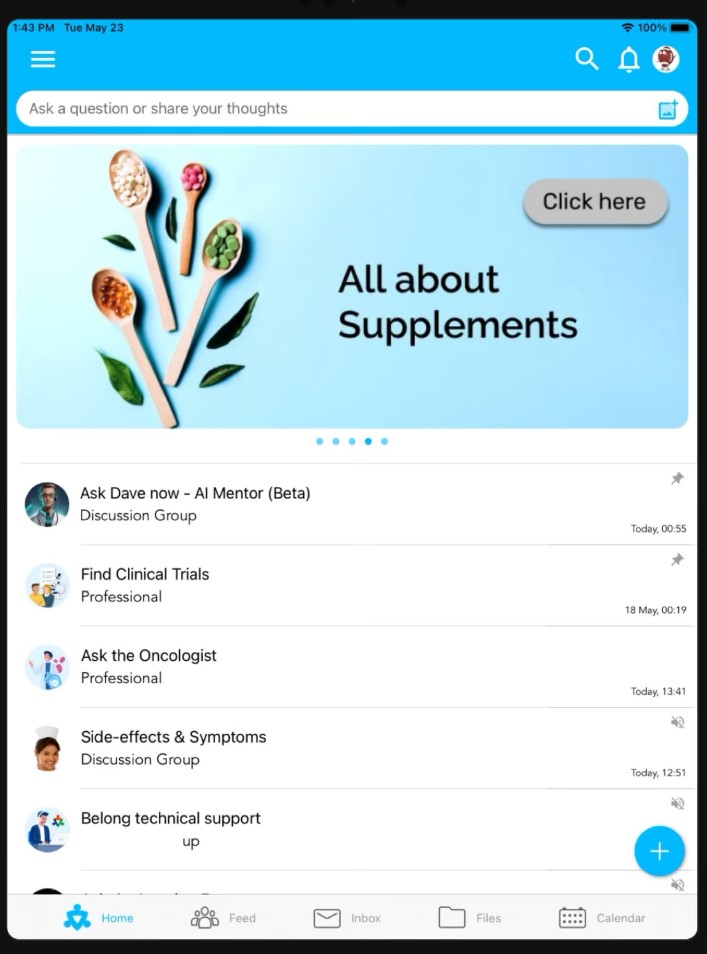
“I felt clueless,” he says. “I never went to med school and it was hard for me to navigate [and] I was her primary caregiver.
“One year into the process, I knew a lot, but that was too late for my mother to make any impact on her journey. Maybe we couldn’t have saved her, but we could have improved her quality of life and maybe prolonged it.”
Determined to help other families living through similar situations, in 2016 Deutch, co-founder and CEO Eliran Malki and their team sat down to brainstorm a solution.
“We shared our knowledge and everybody in the team had similar experiences with a dad, a spouse, a grandma,” he recalls.
“So we said, we know data, we know how to play with data and how to extract value out of it. Why don’t we do something to improve patient lives through data? That was the moment where Belong was born.”
The Belong team created a free social media app for cancer patients to anonymously share their experiences, tips for coping with the rigors of treatment, and dealing with the inevitable emotional challenges.
Belong also invited medical professionals working in the field of oncology to share their knowledge with app users.
“We put into the community [space] experts to answer all sorts of questions: experts in oncology, specific tumors, mutations, radiation, palliative care, even holistic things – [for example] sexuality and cancer is a big psychological issue,” Deutsch says.
Cancer charities and support groups warn that patients can feel a sense of isolation while undergoing treatment, often believing that others struggle to understand what they are going through. They strongly advocate joining support groups or talking to experienced medical professionals about how they are feeling.
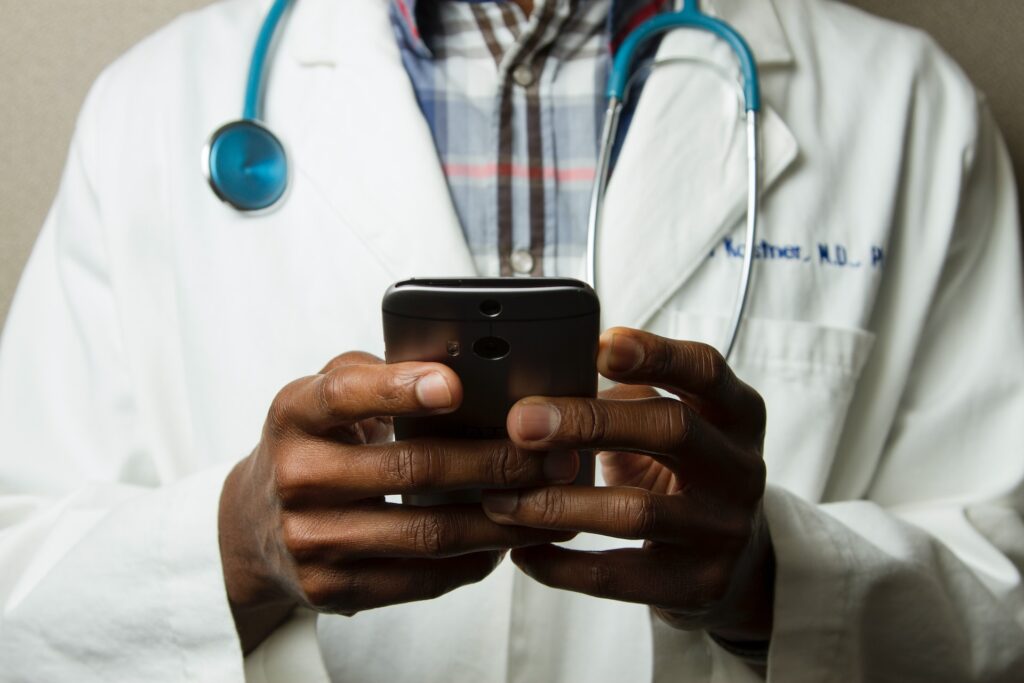
And in addition to the emotional support it offered, the app also has a space for the multitude of documents that accompany complex, long-term medical treatment for illnesses such as cancer.
The app, which can be downloaded onto a smartphone or tablet, allows users to upload all their documentation into a private group so that it can be shared by loved ones who are involved in a patient’s personal treatment.
Patients can also share this documentation with others undergoing similar cancer treatment, allowing them to learn from one another’s experiences and therapy choices.
“What we have is patients engaging with experts, friends, mentors, for a long period of time, almost on a daily basis. The average cancer patient uses Belong 15 times a month,” he says.
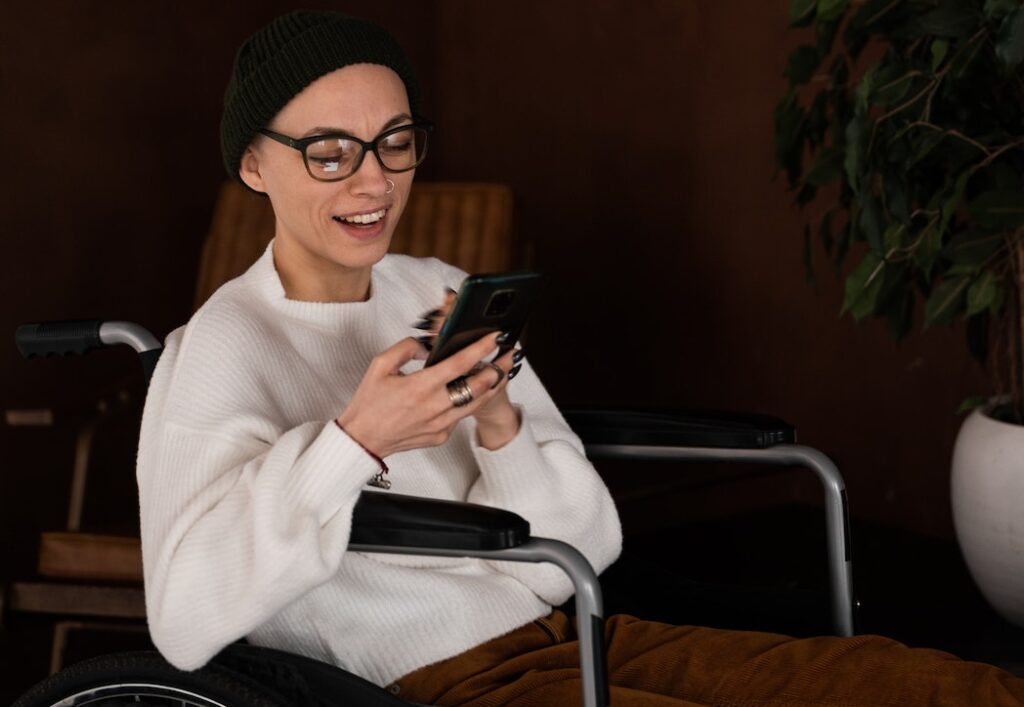
The app has proved so popular that Deutsch says it is currently in use by one in four cancer patients in Israel and one in 10 in the US.
Sign up for our free weekly newsletter
SubscribeIn fact, he says, Belong has even permitted the creation of white label offshoots, allowing medical institutions to create their own version of the app for their patients.
Killing Giants
Determined to expand the help it offers, the company also recently introduced a virtual AI mentor to offer support and advice to cancer patients and their nearest and dearest.
The mentor is called Dave after David, the biblical king of Israel who slew the giant Goliath. After all, Deutsch says, cancer is each patient’s individual Goliath to slay.
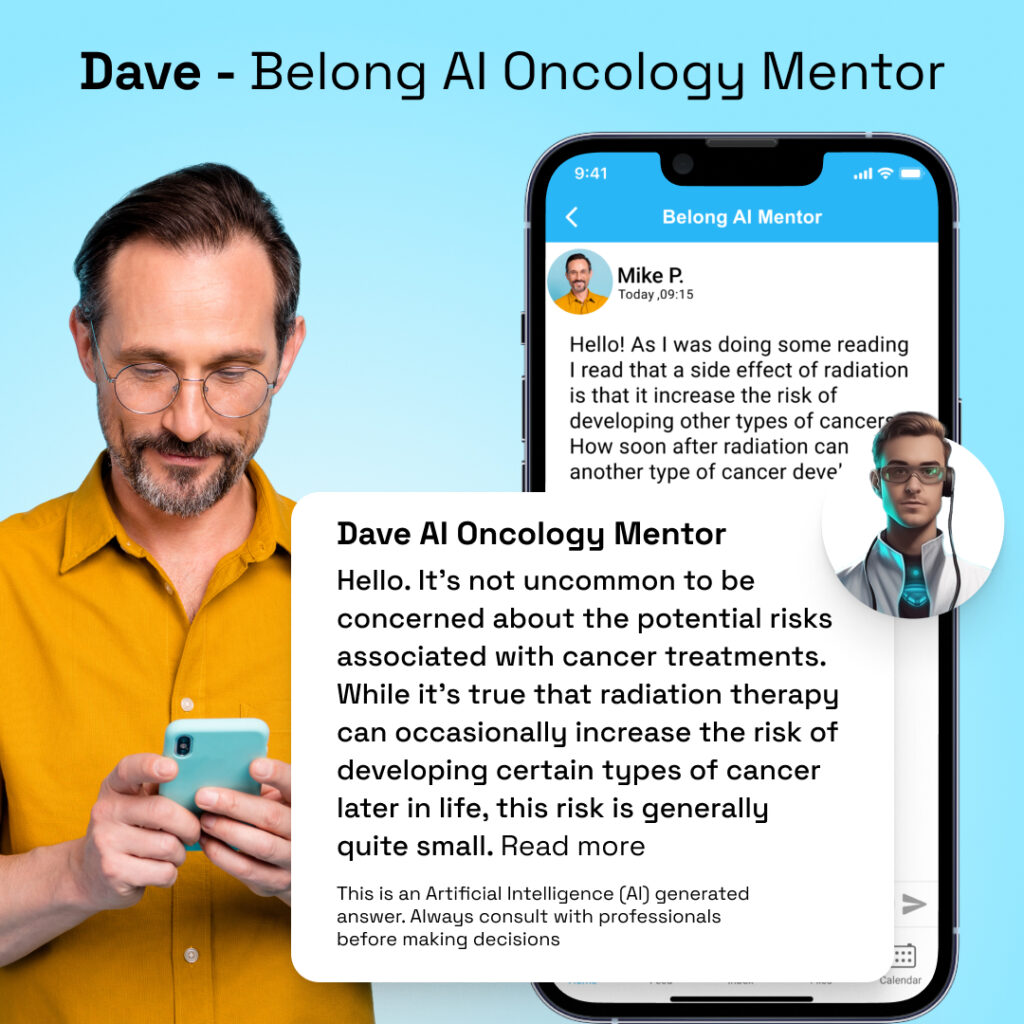
The company used machine learning and massive amounts of data about the disease to train Dave to help support people through their cancer journey.
Dave is essentially a very carefully curated, very closely monitored form of ChatGPT for cancer patients, based on verified authentic medical information and data gathered over the past seven years.
“People go to Dave and say, ‘Hey, Dave, I’ve been doing this treatment and that treatment. Why am I given this? What is the protocol?’” Deutsch says.
“And Dave will elaborate and explain to you in a very empathetic way what the protocols are, how the guidelines work, why decisions are being made.”
In fact, Deutsch used the mentor himself recently, when his own father was undergoing cancer treatment. It helped him understand some of the post-surgery issues his father was experiencing and find a suitable response.
“Dave can highlight things for you in the journey, and breach the technical gaps in you understanding complex things, in a way that you can digest,” he says.
Dave’s twin at Belong – as Deutch puts it – is Tara, an AI platform to match patients at the end of the road with conventional treatment to clinical trials of experimental therapies in which they can potentially participate.
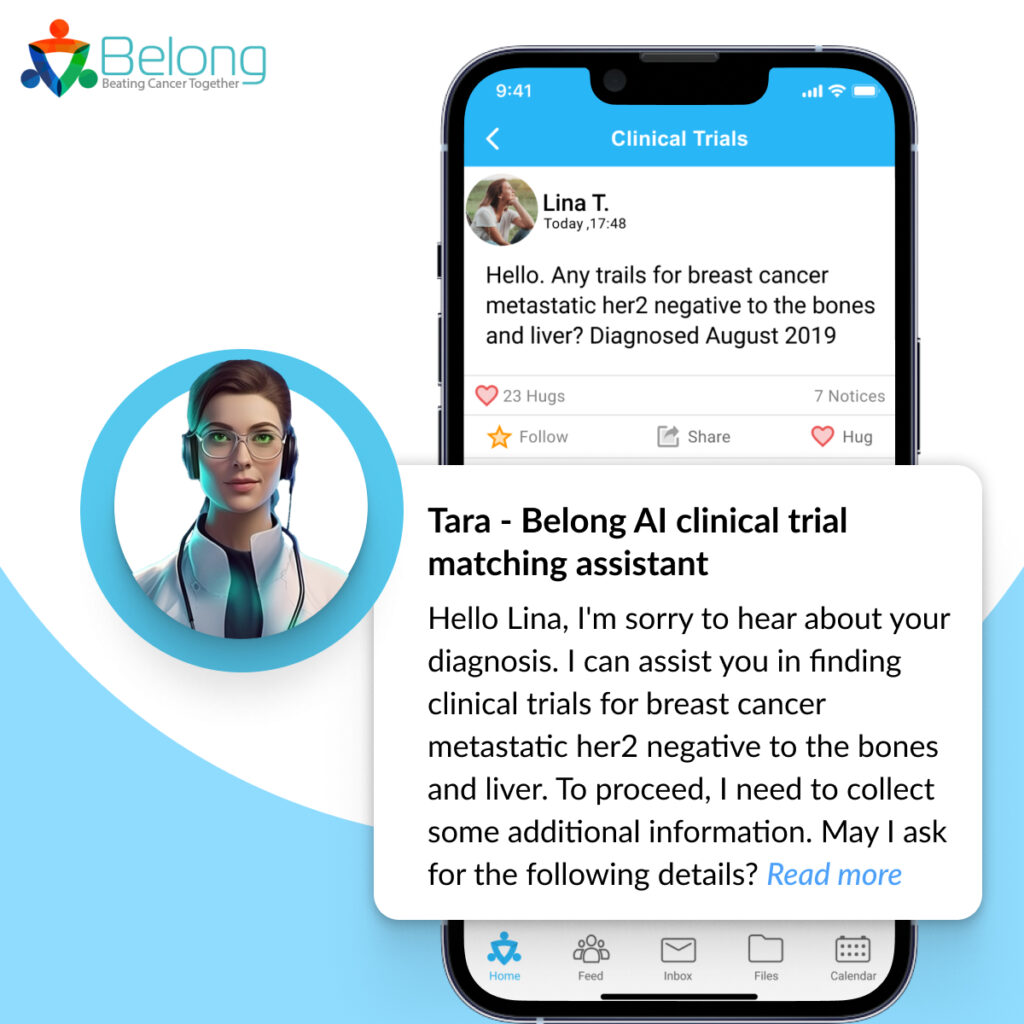
Tara scours all available information about the hundreds of thousands of clinical trials for cancer and matches it to the individual based on location and the form of the disease.
The platform can even scan a patient’s medical records and deduce which mutation is present in order to find a suitable trial. It can even locate clinical trials that have not yet been made public by medical institutions.
“She can read everything in seconds,” Deutsch says. The startup is now also being approached by hospitals looking for candidates for upcoming trials.
With the success of their platform for cancer patients, Belong has also launched a parallel service for multiple sclerosis sufferers and is working on an app to help people living with Crohn’s disease, a bowel disorder with no cure that causes inflammation of the gastrointestinal tract.
The company, which is based on Moshav Bnei Atarot near Tel Aviv, has so far raised more than $30 million. But, explains Deutsch, its business model is strictly patient centered.
“The patient comes first,” he says. “There’s a big sign in our office: ‘First we do good, then we do well.’ And we stick to that.”
Related posts

Editors’ & Readers’ Choice: 10 Favorite NoCamels Articles

Forward Facing: What Does The Future Hold For Israeli High-Tech?

Impact Innovation: Israeli Startups That Could Shape Our Future




Facebook comments